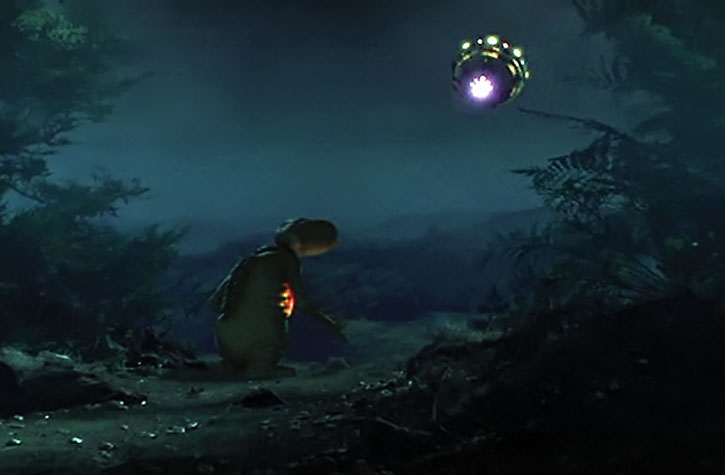Correction: Every great screenplay has a fabulous inciting incident. But what exactly does that mean?
The dictionary definition doesn’t quite do the trick for screenwriters. From Merriam Webster (MW):
in·cite | \ in-ˈsīt
\ incited; inciting – transitive verb
: to move to action : stir up : spur on : urge on
The synonyms help a little: But look at this direct cautionary quote from MW.
“Choose the Right Synonym for incite”
“incite, instigate, abet, foment mean to spur to action. incite stresses a stirring up and urging on, and may or may not imply initiating. inciting a riot; instigate definitely implies responsibility for initiating another’s action and often connotes underhandedness or evil intention. instigated a conspiracy; abet implies both assisting and encouraging. aiding and abetting the enemy; foment implies persistence in goading. fomenting rebellion”
As you can see, even the synonyms seem to reflect mainly overly dark and violent connotations.
In the case of a film script, yes the “inciting incident” might describe a riot, or instigating underhanded or evil intentions… But it doesn’t necessarily mean anything of the sort.
Case in point: In the popular and enduring romantic comedy, Sleepless in Seattle, the inciting incident – i.e. the event that sets the story in motion; the kickoff; the hook – is a simple phone call, when Tom Hanks’ character tells a national radio station how much he misses his dead wife.
Not exactly the stuff of riots, would you agree? But without that phone call, there’s no story.
Ay, there’s the rub. The inciting incident isn’t just the first memorable thing that happens in the story, although it might be. So what’s the key to pinning down your inciting incident, especially in a story where it may not be obvious? This: Ask yourself a single question: “Where would this story go if that particular thing didn’t happen?” If the story would be the same, without a dab of color, you’ve missed identifying the inciting incident. It is the very reason you’re telling this story now.
Where is it in Saving Private Ryan?
Another interesting example of an inciting is in the iconic war film, Saving Private Ryan. Be careful before your kneejerk response. The inciting incident is not the unforgettable announcement scene to the mother. It’s the actual deaths of her sons, Private Ryan’s three brothers. One of them was killed a week before. The other two died at Normandy.
We hear of all three deaths on Page 10. And some might argue that the inciting incident is the War Department realizing the boys were from the same family. I would argue that the deaths themselves comprise the inciting incident.
Note that we don’t actually see them die. We just hear about it. First on page 10 in the War Department office. Then dramatically and wordlessly at the Iowa farmhouse on Page 12.
But the actual inciting incident doesn’t happen on the page at all. Only the realization of it. Yet there’s no doubt as to the inciting incident’s identity. Without the deaths of the three brothers, the story simply would not happen.
An “exciting incident” – not always
Also important to note: it’s not called an “exciting incident” as Ross on Friends described it in “The One with the Inappropriate Sister.”
(ROSS (reading): “Okay. ‘A room. A man enters. He looks suspicious.’ That’s it? Joey, you’re supposed to have five pages done by now; including an exciting incident.”
Yes, of course, sometimes the inciting incident is indeed exciting. Like in Jaws. And sometimes it happens in the first scene. Again like Jaws. Or E.T. But just as often it’s no more than the likes of a phone call to a radio station.
Again, the inciting incident is the reason you’re telling the story now. Without it, there is no story arc. It’s just a slice of life. And that won’t get you far in your dream journey to have your script produced.
Still stumped? Here are some more inciting incidents worth studying. Take a look at 50 pulled together in a supercut by an enthusiast (and surprisingly reposted by No Film School as examples of well-known inciting incidents, as several of them are wrong). The clips show memorable moments of iconic films. But definitely not all featured here qualify as the film’s inciting incident.
Well, there again, that’s my opinion. Some say the inciting incident in E.T. is Elliott finding the alien in the backyard shed. My own analysis is that the inciting incident is the one depicted in the picture up top – E.T.’s spaceship leaving him behind. If you put it through my earlier test sieve, if E.T. weren’t abandoned by his ship, there would be no movie.
The reason you’re telling this story, now
Remember, the inciting incident is the single event or scene which drives the story from the get-go. Sorry to be so repetitive, but it’s a point many writers need to hear more than once.
Here’s a more instructive approach to the problem by Macabre Storytelling worth 15 minutes of learning time.
Got it now? Ready to present it through your craft? Good!
Be so compelling in how you reveal it that there isn’t a reader in L.A. — or anywhere else — who is too jaded to appreciate your unique hook. Aim to engage even the most cynical of gatekeepers.
Now, go write an extraordinary inciting incident that perfectly suits your remarkable story and beautifully written screenplay.


